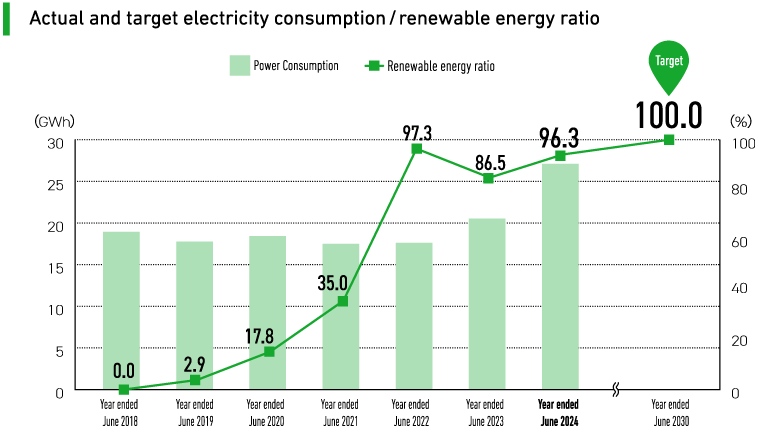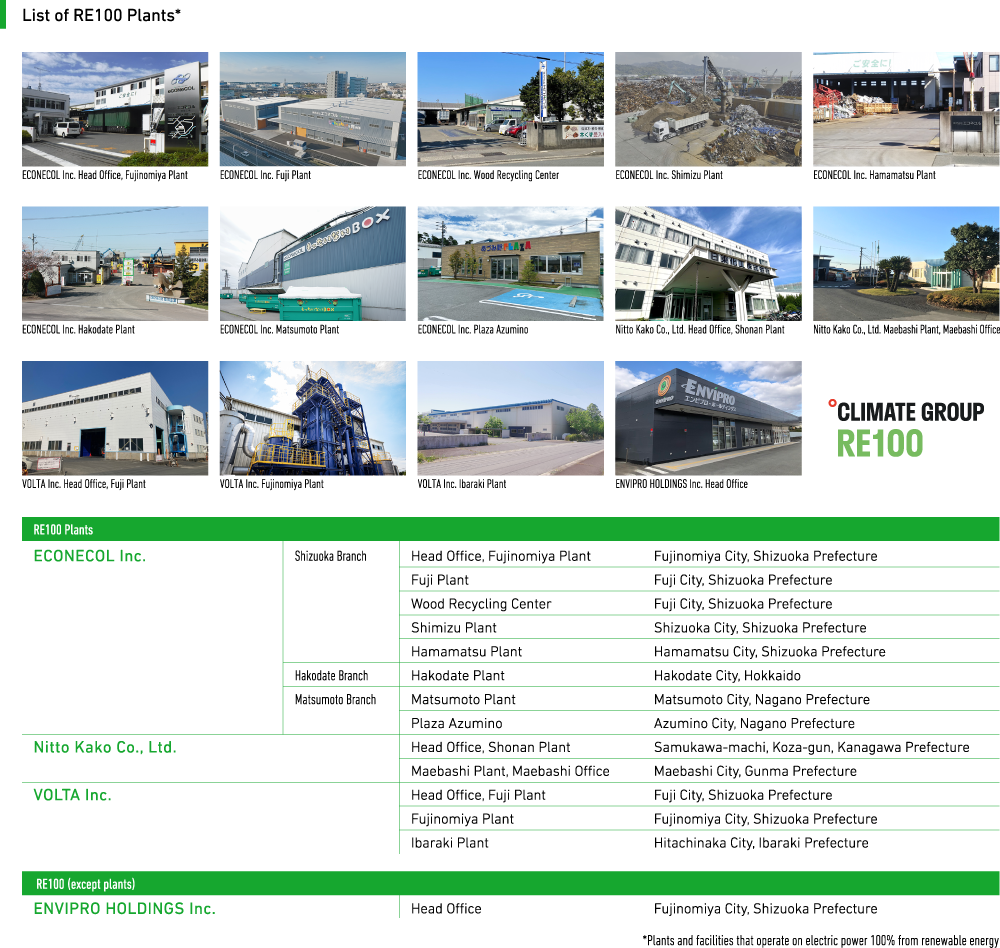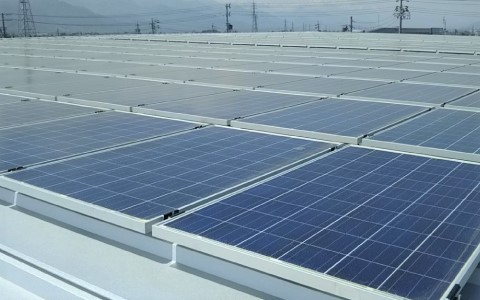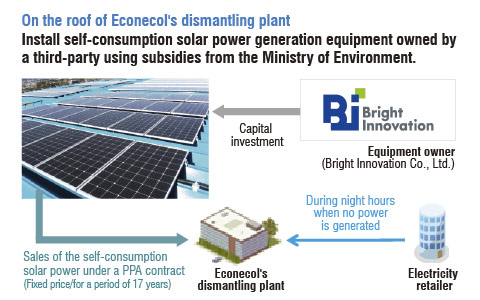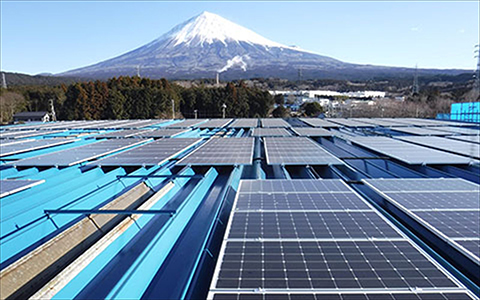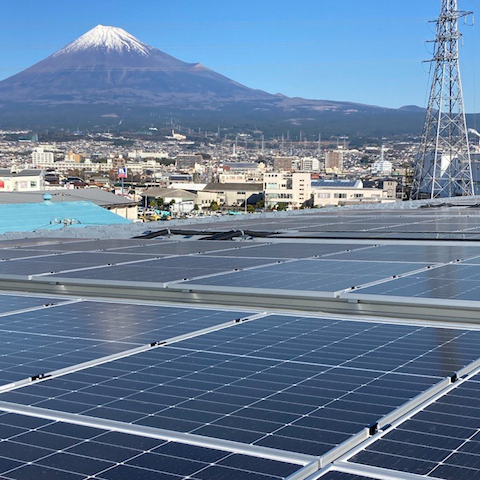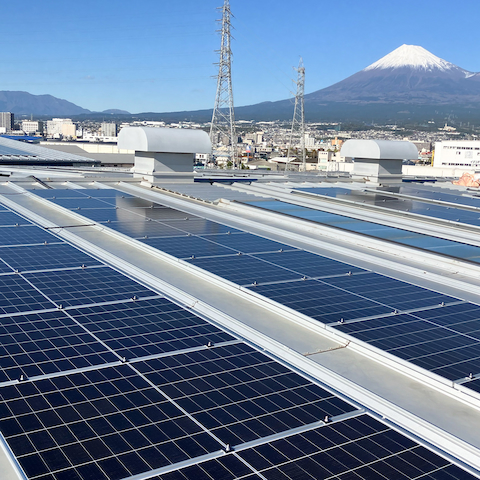Promise to become carbon neutral in our business by 2050
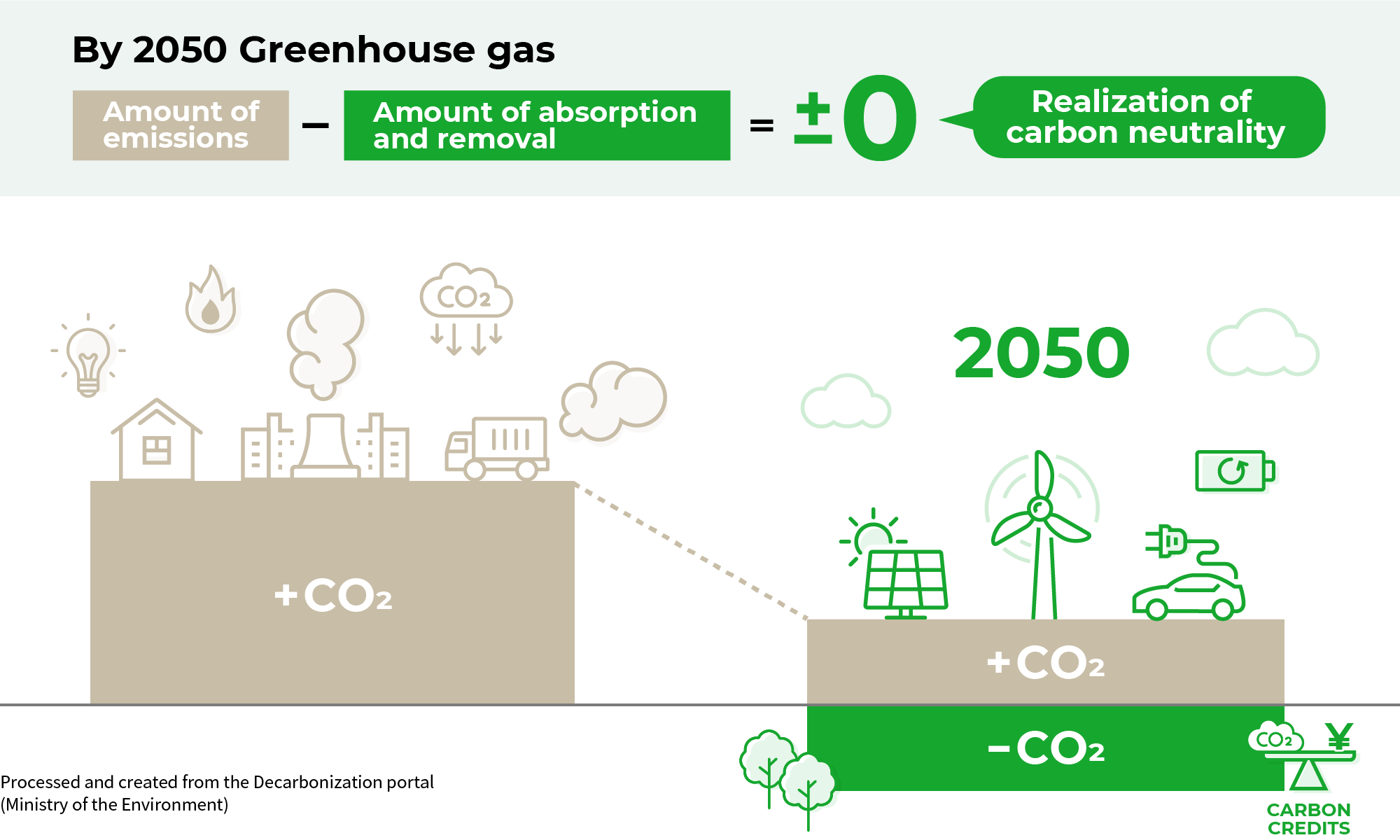
In light of the Paris Agreement coming into force in 2016 and the ensuing global movement toward decarbonization, in 2020 the Envipro group has decided that we will achieve net zero GHG emissions from our entire businesses by 2050, including the disposal and recycling of the scrap handled by our Group.。
Resource issue and climate change issue are closely related to each other, not individual issues, and furthermore both of issues are global social issues. Endless resource mining and greenhouse gas emissions are detrimental to sustainability. And we should find any solution to preserve the planet Earth's resources and its natural environment that we share in the future.
Our Group's business, which is located at the end of the supply chain and our Group is responsible for Resource Circulation Business, possesses the business characteristics that enable it to tackle both of these critical social issues through its business, and we believe that this is precisely the social responsibility that the Group should fulfill.
Efforts toward carbon neutrality by 2050
The Group has identified GHG emissions and the percentage of electricity generated from renewable energy sources as indicators to be used in assessing and managing climate change-related risks and opportunities, and has publicized target values for each.
CO2 emissions (Scope 1+2) were 5,963 tons in the fiscal year ended June 2024, a 56% reduction compared to the fiscal year ended June 2018.

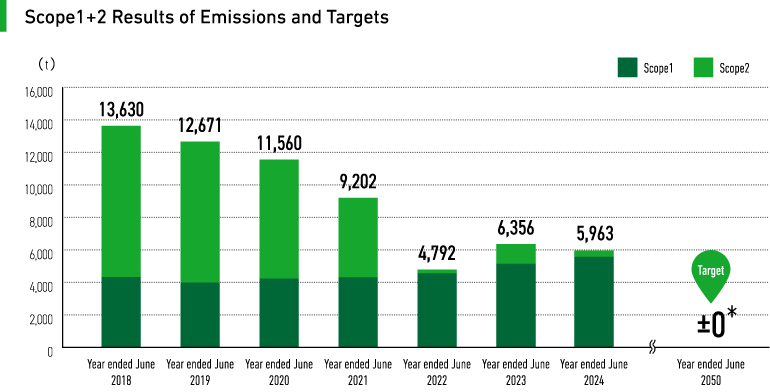
*Scope 1 and 2 emissions for the fiscal year ended June 2050 are listed as net zero as ±0.
In the fiscal year ended June 2023, the Group underwent third-party verification by the Japan Quality Assurance Organization (JQA) to objectively evaluate the calculation of Greenhouse gas emissions (Scope 1 and Scope 2), which are important environmental indicators, and to further enhance the reliability of the calculation.
Greenhouse Gas Emissions Verification Report
We will continue to make efforts to accurately calculate environmental indicators and promote reliable information disclosure.

The ENVIPRO Group produces recycled materials by shredding and sorting waste. In the fiscal year ended June 2024, the Group as a whole shipped 520,000 tons of ferrous scrap to steel mills. Steelmaking in an electric furnace from ferrous scrap reduces CO2 emissions by 1.39 t-CO2 per ton compared to manufacturing in a blast furnace converter from natural resources such as iron ore (according to materials from the Japan Iron and Steel Recycling Institute). The same amount of iron produced from natural resources such as iron ore would generate 1,040,000 t-CO2, but the steel production process generated only 317,200 t-CO2, reducing emissions by 722,800 t-CO2.

ENVIPRO Group sold 24,000 tons of RPF to paper making companies in the year ended June 2024. CO2 emissions per ton (calorific value conversion factor) are 2.33 t-CO2 for imported thermal coal and 1.57 t-CO2 for PRF. Comparing the CO2 emissions when the same amount of coal (24,000 tons) and RPF are used, emissions from the use of coal would be 55,920 t-CO2 and emissions from RPF would be 37,680 t-CO2, resulting in an annual reduction in CO2 emissions of 18,240 t-CO2.
Renewable energy 100% in our business by 2030
In July 2018, the Group joined "RE100", which aims to make the electricity consumed in business activities 100% renewable energy by 2050. We are the first recycling company to join this initiative in the world.
In December 2020, as we announced our commitment to be carbon neutral by 2050, we reset our target year of RE100 to 2030, which is 20 years ahead of schedule. This is because we recognize that expanding and accelerating renewable energy which is the most important measure against climate change is an important theme to tackle for our company, which has the mission of "contribute to create a sustainable society".
As of June 2024, there are 14 plants and facilities that operate 100% on renewable energy, including Econecol's Fuji Plant, which has installed power generation equipment with low environmental impact using solar panels on the plant roof and has established a system that enables in-house consumption of renewable energy power.As of June 2024, the percentage of renewable energy power used by the entire Envipro Group was approximately 96.3%, and we are steadily advancing our RE100 initiatives toward the goal to be achieved by 2030.


